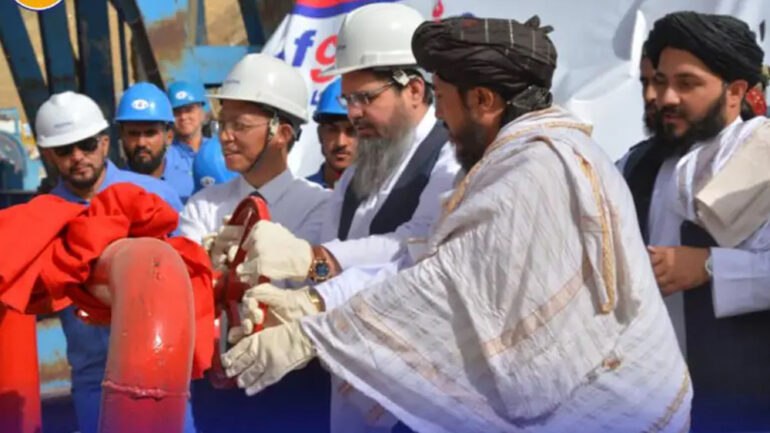RASC News Agency: The Taliban’s Ministry of Mines and Petroleum has officially confirmed the cancellation of a long-term oil extraction contract with the Chinese state-linked firm CAPEIC (also referred to as “Afchin”), citing repeated contractual breaches and systemic non-compliance. The deal, once promoted as a cornerstone of the Taliban’s economic diplomacy, has now collapsed in what analysts describe as a striking indictment of the regime’s institutional incapacity and its deteriorating relationship with international investors. According to a statement posted on X (formerly Twitter) by Homayoun Afghan, the ministry’s spokesperson, the contract concerning the Amu Darya oil fields was terminated after a joint technical and legal review found that CAPEIC had consistently failed to fulfill key terms of the agreement, thereby violating multiple provisions of the original pact.
“Following assessments conducted by a joint government delegation, and based on recommendations from the Taliban’s Economic Deputy and direct orders from the so-called Prime Minister, the agreement was officially annulled,” the statement read. The Taliban claims that CAPEIC, over the course of two years, failed to deliver on operational benchmarks and investment commitments related to the project. Despite promises of significant financial inflows, the group now concedes that most elements of the 25-year contract remained unimplemented, eroding hopes that the regime could use energy revenues to stabilize its crumbling economy.
Signed in early 2023, the contract had promised to inject $150 million in the first year alone, with a projected investment of $540 million over three years, targeting oil fields in the northern provinces of Sar-e-Pul, Jawzjan, and Faryab including resource zones such as Qashqari, Zamardsai, Aqdarya, Bazar Kami, and Angot. At the time, the Taliban had touted the deal as a major diplomatic achievement and a sign of its ability to conduct international business. However, the abrupt collapse of the agreement has exposed the regime’s lack of legal infrastructure, technical oversight, and credibility in the international economic arena.
Despite repeated claims of transparency, the Taliban has not published any independent audits or third-party evaluations of CAPEIC’s performance, nor has it provided detailed evidence of the alleged breaches raising concerns about the opacity and arbitrariness that characterizes the group’s economic policy. In a face-saving move, the Taliban has now issued an open call for experienced international advisory firms to assist in reviewing legal documents, assessing technical conditions on the ground, and facilitating financial settlements with the Chinese firm. Yet experts question whether any credible firms would risk their reputation by entering into direct collaboration with a globally unrecognized and widely sanctioned regime.
“This agreement’s collapse is not just a commercial failure it is a strategic embarrassment,” said Zubair Azizi, a former Afghanistani official in exile. “It reflects a deeper truth: the Taliban is structurally incapable of managing complex state functions, let alone navigating international commerce with transparency and accountability.”Observers note that even China, one of the few countries that has maintained limited engagement with the Taliban for resource access, is now showing signs of retreat a red flag that even geopolitical pragmatism may no longer outweigh the risks of partnering with an ideologically rigid, diplomatically isolated regime.
Meanwhile, the Taliban has offered no plan to replace the potential revenue stream that this contract might have generated. In the absence of any new tenders or alternative development projects, the regime’s economic future appears increasingly dire. The loss of the Amu Darya contract underscores a broader trend of foreign disinvestment, economic stagnation, and internal disarray under Taliban rule. Worsening matters is the group’s broader inability to foster legal certainty, protect investor rights, or maintain a functioning civil bureaucracy. The exclusion of technocrats, the collapse of regulatory institutions, and the Taliban’s ideological domination of state apparatuses have left Afghanistan with virtually no capacity to manage large-scale development projects.
This failed agreement now joins a growing list of broken promises and dysfunctional initiatives undertaken by a regime that has systematically purged qualified professionals, repressed dissent, and failed to offer any legitimate roadmap for national reconstruction. As Afghanistan’s humanitarian and economic crises deepen, this high-profile contract debacle serves as yet another painful reminder that the Taliban’s grip on power has yielded not governance, but institutional decay and international estrangement.






